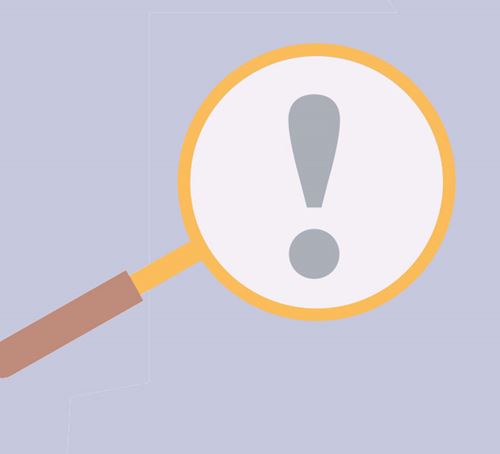Ethics Series: Educating Ethical Chemical Engineers

David Shallcross and Allyson Woodford discuss challenges and methods to teach ethics, using real-life cases
DOES Terry need a new job? After 15 years in the Gulf Coast petrochemical industry he suddenly lost his job. His company had made some poor business decisions which required drastic savings to be made. Terry was one of several experienced chemical engineers who found themselves unexpectedly unemployed in late 2019. His hunt for a new job was complicated by the pandemic that began to sweep around the world. Fortunately, after five long months of unemployment he landed an engineering role with a big and well-known recycling and waste company, Alldav Waste Management (AWM), in the Midwest of the US.
AWM was expanding and had recently acquired the assets of a rival company. One of these assets was a medical waste incinerator facility, exclusively servicing the needs of one local hospital. During the pandemic the volume of material going to the incinerator from the hospital increased significantly. The hospital was dealing with increased numbers of patients, disposable protective gowns, masks and other items. The incinerator was under immense pressure as the volume of medical waste had more than tripled.
On his first visit to the incinerator facility Terry saw at first hand the problems the local team was facing. The facility was old and suffered from years of poor, under-funded maintenance. Terry was alarmed to see that safety was clearly not a priority, as safety features were regularly bypassed. Terry learned that the facility regularly breached its environmental operating licence but it wasn’t reported. Terry was also told that there had even been an incident two years earlier when an operator was injured when one of the safety systems failed. Terry’s immediate response was to shut down the incinerator.
Despite operating at its maximum throughput around the clock, the operating margins on the incinerator were very poor. Any financial investment made to make the facility safer and environmentally compliant would simply make the whole facility uneconomic, and AWM had other places where it could invest its funds more profitably.
During his visit Terry took the opportunity to meet with management representatives of the local hospital. They explained to him the importance of the facility to their operation – it was made clear that they would be unable to operate the hospital if the incinerator was unavailable for any length of time. As one official explained, the incinerator was vital to the hospital saving lives.
Terry was faced with a problem. The facility that he was now responsible for did not come close to meeting the standards that he was used to in the petrochemical industry. An immediate investment by AWM was needed, but his managers had made it clear that there was no money available for the incinerator complex. If forced on the grounds of safety to make a decision, the company would simply shut down the facility, cutting its losses. Such a shutdown would leave the local hospital in a dire situation which could lead to its long-term closure.
Terry knew that any agitation on his part could lead to him losing his job. With his wife recently made redundant from her job, the prospect of being unemployed, even for a couple of months, was overwhelming.
What should Terry do?
Scenario: Fraud

As a young academic working in the US during the 1980s, Paul had to book a set of return flights from California to Venezuela to attend an oil and gas conference. As the trip would require three separate flights in each direction with different carriers, Paul estimated the cost to be at least $1,000. When he visited the travel agent that was recommended by his institution to make the travel arrangements (remember this was pre-internet), the travel agent told Paul that the ticket price would be just $460.
Paul: “Really? Only $460? Given all the flight sectors I would have thought that it would be closer to $1,000 to $1,200”.
Agent: “Well, we can charge your company $1,200. Then you pocket the difference”.
Paul: [Surprised at the immediate response from the agent] “Err … no”.
Agent: “Lots of people do it. It’s okay. We can set it up for you”.
Paul: “No. Let’s just pay the $460”.
If Paul had agreed to the deal and pocketed the $740 then he would have been engaging in fraud. Of course, he would have betrayed the trust of both his employer and his colleagues. And there is also the knowledge that many professionals who have engaged in major fraudulent activities generally all started off with a simple transgression involving what appeared to be a modest amount of money. At the time, Paul was also surprised at the blatant manner in which the offer was made, and that it was made at the travel agent specifically recommended by his employer.
Why should we teach ethics?
Students commencing their chemical engineering studies generally are expecting to develop and refine their skills in mathematics and chemistry. They will also quickly learn about the underlying principles of material and energy balances, transport processes and unit operations. Most students, however, will not have considered the importance and challenges of behaving ethically as a professional engineer.
Often our first contact with professional and ethical behaviour comes through our interaction with medical practitioners. We assume that our doctors will provide the very best medical advice to us. We assume that they will continually keep up with the latest developments in medicine. They will not recommend unnecessary procedures and will always explain the risks of any procedure. They will also not receive any reward for prescribing medications or tests. We assume that our health will be their primary concern. We know (mostly from movies and books) that they take a Hippocratic Oath. As a consequence of their ethical behaviour, we generally regard doctors and other health professionals such as nurses, with respect, trusting their advice and that their actions are driven by a high regard for our health.
Like the practitioners in other professions such as medicine and law, engineers are expected to behave ethically in order to warrant the trust and respect of the community, ensuring that their advice and actions are respected by all. Engineers should use their knowledge and skills to the utmost of their ability to deliver benefits to their community. They should do so, putting the needs of the community ahead of any personal needs.
Students commencing their chemical engineering studies generally are expecting to develop and refine their skills in mathematics and chemistry...Most students, however, will not have considered the importance and challenges of behaving ethically as a professional engineer
Students and young adults will generally not have experienced the need to resolve an ethical dilemma requiring them to choose between at least two competing sub-optimal options. Some students will enter with strong ideological preferences but with little real-world experience as to the implications of such positions. They might not understand how their decisions, actions or words might have wide, far-reaching and sometimes unintended impacts. It is for these reasons that chemical engineering students must be educated about their responsibility to behave ethically throughout their future careers. It is only by reflecting on the consequences on society of their future professional actions that students can become more responsible engineers.
Who are we teaching?
Chemical engineering is a diverse church. We span all ages, genders, geographies and religious beliefs. Even in this post-pandemic world, tertiary education is a global business with many students studying outside their home countries (more than half of the enrolled students in some institutions will be from another country). As well as arriving with the required competencies in maths and chemistry, students arriving in a country to study an undergraduate programme will also bring with them their own sets of personal and cultural values. Sometimes these values might be at odds with the values of their new institutions.
Students will gain their sense of what constitutes ethical behaviour from the sets of values that they have grown up with. These values might arise from their family, their community, their religion or from other influences. Engineering educators in any country must be careful not to assert that their set of values might be superior in any way to those of their students. Having said that, educators do have a critical role in providing students with a clear ethical framework that can be applied regardless of the location of the student. Students also need to understand the ethical
expectations of working in large global companies which often span multiple cultures and geographies.
Scenario: Environment

Alana is a new waste water engineer at a brewery. She has faced her first plant upset and knows that the effluent water is likely to be outside of the range of approved release. She is advised by her supervisor to take samples at the final process sample point and not the outfall. She follows the request and thinks nothing of it. The WWTP can often slow the brewery down so she understands the need to keep it online. Later she learns that if she had tested at the outfall the company would have needed to report the findings to the EPA. Alana also learns that the operators turned on dilution water to the outfall on the basis of her test results. Alana feels uneasy – What should she do? Is dilution the solution to pollution?
What are the challenges of teaching ethics?
The topics of ethics and ethical professional behaviour are not like any of the technical topics covered in a chemical engineering degree. While there are guidelines for designing the thickness of a pressure vessel wall, or selecting a plate heat exchanger over a shell-and-tube exchanger, there are often no clear-cut solutions to resolve an ethical dilemma.
While students can be presented with ethical theory in which to frame the issues of a particular dilemma, it is often better to provide the students with a series of real-life scenarios together with a set of professional tenets developed by a professional body such as IChemE. The educator has to assist the student to build a portfolio of “someone else’s experiences” for them to reference when utilising that framework. Terry’s situation at the start of this article is one such scenario.
Students will have limited exposure to ethical situations and may face their first in the course of their study - academic integrity. They will understand that it is not acceptable to cheat by copying or paying someone to take an online examination in their place. Will they have enough experience to be able to tell when studying together might actually become collusion in an assessment item, or when inadequate or insufficient referencing might lead to an allegation of plagiarism? “I know it’s bad practice, but I haven’t crossed a line… have I?” This level of personal ethical challenge is hardly enough to prepare them for the sometimes wicked challenges they will face as a professional engineer. Professional engineers may face situations in which they must deal with issues arising from conflict of interest, confidentiality of information, corruption, financial irregularity including bribery and fraud, limits of competence and misrepresentation of information (particularly with respect to safety and the environment).
Students will generally understand on a superficial level the need for a professional engineer to perform ethically and not just go through the motions; however, they usually will have a weak understanding of just how complex a situation can become when all the competing factors are considered. Educators need to present students with a range of increasingly complex situations and remind them that sometimes that there are no binary good or bad decisions or clear-cut solutions which satisfy all the competing factors.
How should we teach chemical engineering ethics?
Ethics is a challenging subject to teach, particularly to tech-hungry engineering students who often fail to see the relevance of such a non-technical topic. Because many chemical engineering educators are less comfortable teaching a topic like ethics, it is often left to academics from outside engineering to cover the topic. Through a series of lectures that are common across all the engineering disciplines taught within a particular engineering school, popular ethical case studies are used to illustrate ethical dilemmas. Well-known disasters are often used: the Challenger space shuttle disaster (failure of an embrittled O-ring); the failed Ford Pinto (poor fuel tank design); and a flaw in the structural design on the Citycorp Tower in New York (compounded by a construction error weakening the building structure). While all are valuable and interesting cases, they are not necessarily engaging to the chemical engineering student. They might rightly feel that they would never be involved with designing the fuel tank of a motor vehicle, or have to design the structure of a highrise building in New York. Students engage with material that they can readily relate to.
Around the world it is common for professional ethics to be taught by delving into a list of significant engineering disasters. The incidents might include the loss of the North Sea Piper Alpha platform, the Bhopal gas release, and the 2005 Texas City refinery explosion. However, these scenarios only address some types of ethical issues (that often include organisation-level failures). In many programmes today, students are not provided with any guidance as to how to deal with day-to-day ethical situations that they might face within their first few years of professional practice straight out of university. Is it acceptable to accept a USB stick from a service provider? Is it acceptable for a provider to pay for lunch if a meeting runs late? Should you accept an offer of free tickets to a football game if the provider offers them to you? Should you sign someone else’s calculation if they are less experienced?
The Structured Controversy Technique is a particularly powerful method to engage students in discussing the potential ways to resolve ethical scenarios. The technique is particularly useful in overcoming the natural reticence of students to participate in a class discussion. In the classroom, students are formed into groups of four. The entire class is then presented with an ethical scenario along with at least four different possible strategies to resolve the situation. In each group the students are assigned at random one of the four resolution methods to champion whether they believe the strategy is appropriate or not. They must then speak to the rest of the group, champion the particular resolution strategies for 2–3 minutes. After each student has spoken, the group as a whole must then come to a consensus as to the correct pathway the engineer in the group should follow to deal with the situation. Groups are then selected at random to report back to the rest of the class on their resolution. Ask a student to stand up in front of their class and give their own individual opinion on a complex topic and they will generally be very reluctant – no one wishes to appear foolish to the rest of their class. However, ask for comments from a class following an application of the structured controversy technique, and students generally will not hesitate to offer an opinion. The change in attitude arises because students now feel empowered by having reached a consensus within their group on an outcome – they are not just speaking for themselves but for the group. Students also see that other groups might have reached different conclusions to their own, and must learn to respect those differing opinions. Student engagement through the use of the structured controversy technique is a powerful tool in exploring key concepts around ethical issues. This is just one effective way to get students engaged with ethical scenarios.
The ethical scenarios posed to students can be made increasingly more complex. Chemical engineering scenarios are available that outline challenges relating to the consideration of confidentiality, conflict of interest and limits of competence. Students also relate and respond well to scenarios based on sustainability and safety. In some countries there is also a need for scenarios to be developed that relate to interactions with indigenous or first nation communities.
Although ethics can be introduced early on in the academic life of a student through a discussion of the importance of academic integrity it’s only the start. A fuller discussion of some of the more complex scenarios is often better left to later in the chemical engineering programme when the students are more mature.
Scenario: Cultural heritage

Brandon is a project manager who manages the integrity of pipelines that run through land that belongs to farmers and businesses. He has recently been managing digs on a pipeline that has started to uncover important indigenous artefacts. These artefacts need to be carefully managed and the zoning of the land changes to be one of cultural significance. Upon hearing this information an important major-landholder withdraws access to all the digs on their sites as they are concerned that Brandon’s team might find artefacts on their land. They are worried that they won’t be able to go ahead with the proposed land-develop if it gets re-zoned. The digs on nearby properties have not turned up any artefacts so Brandon and the landholder agree that it is low risk and the dig goes ahead. The very first dig on the landholder’s property turns up small fragments that may or may not be culturally significant – Brandon’s team have asked what should they do?
The importance of an ethical culture
Walk around any university chemical engineering department and you will quickly gain a sense of its safety culture. Are safety rules followed? Is safety signage prominent and appropriate? Does everyone from the Head of Department down model good safety practice? Students will more quickly pick up on the importance of safety within an institution if everyone models safe behaviour in the department. A strong safety culture is important to imbue a strong sense of the importance of safety within the student cohort.
So how do we model an ethical culture within a chemical engineering programme? Respect. It must be an expectation that all members of a chemical engineering department or school exhibit respect in all their interactions with others. They should all feel like members of a community of learners. A student should never be called out for asking a “dumb question”. If a student asks a question then it is through a desire to know the answer, and they have the right to expect their question to be answered in a timely and respectful manner. When decisions are taken that impact students, due consideration and consultation will demonstrate the department’s commitment to respect and hence highlight its ethical integrity.
Ethical role-modelling should also expose the department’s commitment to transparency and fairness. Early on, students should be introduced to the importance of academic integrity, with expectations around acceptable standards being made very clear. In cases in which a student transgresses those standards for a first time, and possible accidentally, then they might receive an educative response. Any penalties imposed for more severe transgressions should be applied consistently and should follow due culture-driven processes.
A performance framework that is often espoused is “leadership drives culture and culture drives performance”. Like strong safety culture, an ethical culture is one that pervades the entire operation of a department or school from the top down, whether you want it to or not.
Scenario: Confidentiality

Bob has recently been promoted to Head of School at his university. His colleague Hannah has noticed that since the promotion Bob’s behaviour has changed – he has been acting rashly, snapping in meetings not sharing resources or information as he usually would. His direct reports and peers have started to question Bob’s capability. Hannah speaks to Bob and learns that Bob is going through the early stages of divorce and is under a lot of stress outside of the office. He tells her in confidence and asks her not to tell anyone else that they have spoken. She is on several committees with Bob and when he is not there people are raising the possibility of asking Bob to step down from his role. Hannah wants to support Bob but at the same time keep his confidence – what should she do?
What is the role of accreditation in all this?
Universities provide the academic formation for an engineer, industry provides professional formation in the first few years of work. It is only after both aspects of their development are complete that an engineer can become Chartered. As well as providing education in chemical engineering design and topics such as transport processes, separation processes, reaction engineering and process control, universities also need to ensure that their graduates are job-ready or world–ready. Students must acquire and develop other skills including teamwork, communications skills and an appreciation of safety, sustainable development and professional behaviour. Unfortunately, education around ethics in the chemical engineering professions is not always done well, if it is covered at all. It is easy to approach ethics in an unstructured and patchy way. It is more difficult to cover it well and coherently across year levels.
The accreditation process is designed to ensure that graduates are sufficiently trained in their course to enter the chemical engineering profession as a graduate engineer. Accreditation assessors can judge the levels of competence achieved by students in design, and the technical topics that make up a chemical engineering programme. Assessors can also consider the exposure of students to management, teamwork, the importance of safety and the role of chemical engineers to meet the challenges of climate change. Assessing the development of ethical behaviour in students is much more difficult to accomplish. One of the few practical ways to address this issue is through discussions with students and recent graduates as part of the accreditation process. Assessors can also look to determine where ethics appears in the intended learning outcomes embedded in the programme.
Accreditation of individual engineers via the gold-standard Chartership process must also assess the engineer’s commitment to ethical practices. Industry must continue the training of graduates beyond graduation. It is the duty of all senior engineers to guide their more junior colleagues as they develop as engineers. Students, academics, engineers and professional societies are all responsible for developing ethical behaviour. Developing a reputation for consistent ethics builds respect for the individual engineer and for the profession as a whole. Ultimately, it’s down to the frameworks we build in early career, the examples we learn from and the standards we set and abide by that lead to the trust and respect of the chemical engineering profession around the world.
In our opening case study involving the incinerator, Terry’s managers became so tired of Terry always raising safety as an issue, that he was instructed not to mention the safety of the incinerator again in any written memo. That helped Terry to realise that he could not remain with the company while retaining his integrity.
Note: All the scenarios included in this article are based upon real situations made known to the authors by practising engineers. The authors wish to thank these anonymous contributors. The names and locations of these situations have been changed.
This article is part of a series on engineering ethics. For more articles, visit the series hub at: https://www.thechemicalengineer.com/tags/Ethics-and-the-Chemical-Engineer
Recent Editions
Catch up on the latest news, views and jobs from The Chemical Engineer. Below are the four latest issues. View a wider selection of the archive from within the Magazine section of this site.




